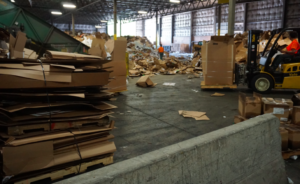Many believe the recycling business to be a fast growing field. And why wouldn’t they—there are opportunities galore, as countries band together to save the planet, reduce our carbon footprint, and increase “sustainability.” However, entering the recycling field is more involved than it seems on the surface, and it takes patience and preparation to become profitable. Below are the three major areas of consideration.
Supply
First and foremost, you need supply. This can be paper, metal, plastics, or electronics. And this material needs to be available in substantial volume, and be marketable. Most think that these commodities are readily available and are sometimes even free for the taking. Think again!
The recycling industry is a well-established and highly competitive industry. Companies have long-term agreements with suppliers and typically pay very competitive prices to purchase these types of recyclables. Larger volume producers are usually under contract with their services providers, and many have recycling equipment on-site to assist with processing their materials.
Space
Once a supply is secured, you need adequate space to handle and process the material. Most material generated has to be sorted, graded, disassembled, packaged, or baled to put the material in “marketable” form. If this is not done—and done properly—the material cannot be sold for the highest possible return.
If you plan to handle these recyclables in substantial volume, it will be necessary to generate full trailer loads prior to shipment. These trailer loads, depending on material, should be in the area of 38,000 – 40,000 lbs + each to minimize your per ton transportation cost. This requires substantial warehouse space and loading docks, and the ability to properly and efficiently stack and load tractor-trailers and containers for efficient outbound shipment.
 You will also need warehouse space for storage of materials you may need to sort or not be able to market. Value and markets for various grades do fluctuate. Certain low grade items can be very difficult to sell – depending on the type of material and the current supply/demand situation. This can be influenced by economic or business conditions being experienced by the end consumer, or even the price of oil as in the case with plastics. If it cannot be sold, you will need to warehouse this material until a market develops.
You will also need warehouse space for storage of materials you may need to sort or not be able to market. Value and markets for various grades do fluctuate. Certain low grade items can be very difficult to sell – depending on the type of material and the current supply/demand situation. This can be influenced by economic or business conditions being experienced by the end consumer, or even the price of oil as in the case with plastics. If it cannot be sold, you will need to warehouse this material until a market develops.
There is always a chance that materials may be rejected because of contamination. If you hired an outside carrier to deliver your recyclables and the load gets rejected, it is typically returned to you at your cost. You will need adequate space for storing, segregating, and sorting the contamination.
Cash Flow
Adequate cash flow is key when operating a recycling company. Buyers of recycled material typically pay in 60-90 days or even longer, which can quickly put your company in a cash crunch and unable to pay your suppliers for additional incoming material.
One final consideration is that you will need a bank that understands the industry and the cycles and variations in market values. In the recycling industry, the market sets your value, which is out of your control. The bank needs to understand that this is not your typical business wherein you set the sale price for your product based on your material cost, overhead, and profit margin.
Operating a recycling business is a complex task, but is doable if you set yourself up for success.

